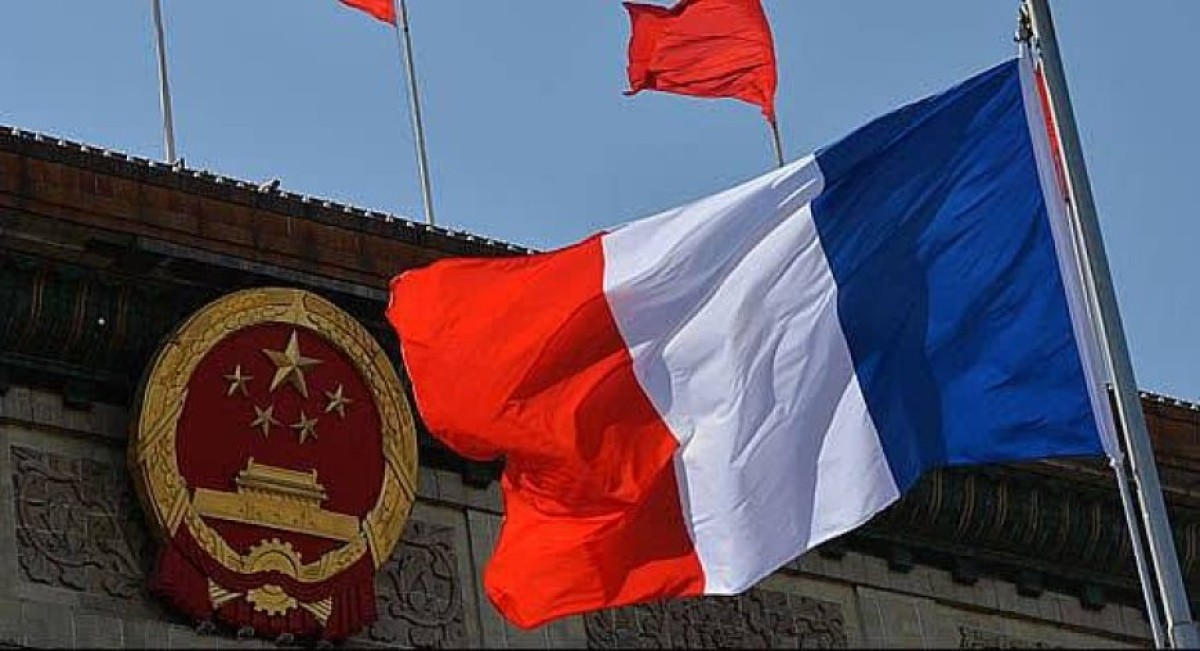 182
182
By: Christian Saint-Étienne
It has been quite some time since China's GDP eclipsed that of France. France and China's ties have changed dramatically over the past six decades, reflecting the world's ideological and geostrategic shifts that have occurred during that time.
There was initially a lot of romanticism between France and oriental China after Charles de Gaulle recognised the People's Republic of China in 1964. This was partly helped by Beijing's ideological and military power struggle with the Soviet Union between 1962 and 1969, a period during which France was relatively weak despite an economic and industrial revival. The 1980s were a period of awakening for the Chinese dragon. Simultaneously, France sold sonar systems to the Chinese Navy and initiated a civilian nuclear programme, contributing to China's greater independence in electricity production and growing modernization. The success of Airbus and the high-speed TGV trains proved that France was on the upswing, whereas China's reputation took a hit after the 1989 crackdown on student demonstrations in Tiananmen Square. Deng Xiaoping nonetheless began China's economic reforms in 1992 during his famous "inspection tour" in the country's south.
Everything changed when China joined the World Trade Organisation (WTO) in 2001. Under the influence of the September 11 attacks of 2001, while China proclaimed itself as an ally of the United States in its fight against "evil powers," the United States deliberately neglected to demand a genuine opening of the Chinese economy in exchange and as compensation. French economic growth averaged just 1% per year between 2001 and 2022, while China's economy grew at a meteoric rate, with no apparent theoretical connection between the Chinese cat's mouse-catching prowess and the "post-industrialization" that hacked off the claws of the French cat.
On his recent trip to China, Emmanuel Macron seemed to have forgotten that superpowers are bound only by the balance of power. With a GDP that was six times that of China in 1964 and that will be six times less in 2023, France has been reduced to a minor player in China's rise to supremacy. Initially, Macron attempted to get China involved in the Ukraine crisis so that Russia would pull its dagger out of Kyiv's eastern flank.
Despite their pleas for peace, China and the United States emerged as the primary beneficiaries of the raging conflict in Ukraine. In fact, both countries used it to gain strategic leverage vis-à-vis Europe. On the other hand, relatively weakened by its special military operation in Ukraine, Russia falls like a ripe fruit into a Chinese dragon's mouth that cannot stop itself from devouring it. Macron also made the mistake of inviting Ursula von der Leyen, the president of the European Commission and a German politician from the conservative Christian Democratic Union and the first woman to hold this position in German history, to accompany him to China. However, von der Leyen gave a bad headache to Macron by delivering a highly controversial speech on March 30 concerning China, a speech she was due to deliver a month later and primarily intended to declare her complete allegiance to Biden in preparation for her future career.
Macron, who has forgotten France's Pacific Ocean interests, could have underlined the colossal deficit of 54 billion euros in 2022, compared to 5.7 billion euros in 2000. It appears that the French government's budget deficit will be covered by the long-negotiated transfer of aircraft and helicopters to China. In the case of the Pacific Ocean, while the French must not tie themselves to the Americans who kicked them out of Australia, they should stand firm on the principle of free navigation in the South China Sea.
In conclusion, Macron's visit to China was deemed an utter fiasco at a time when the balance of power has shifted. Despite this, Paris and Beijing maintain a relationship reminiscent of the hand extended by France sixty years ago, when China was alone and on the brink of drowning.
Comment
Post a comment for this article